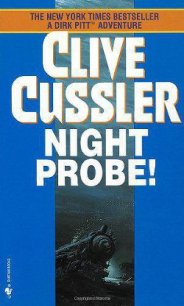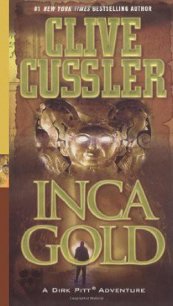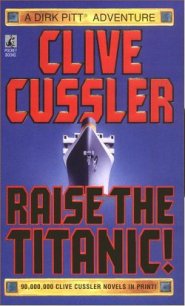The Tombs - Cussler Clive (книги серии онлайн txt) 📗
“I lied, of course,” said Albrecht. “I wasn’t going to tell some glorified gangster about one of the most important discoveries in decades.” He shook his head. “To be honest, I haven’t figured out what it is I’ve found. I had no time to do much analysis or consult with colleagues before Bako’s thugs kidnapped me.”
“What did you tell him?”
“That I had been looking for signs of the Roman occupation force in this district. I carried conviction because, wherever I go in Europe, I’m alert to signs of Roman garrisons. Wherever they camped, they always dug in, and the structure of the place is virtually the same from England to Syria. This was Pannonia, a Roman possession until the Huns arrived.”
“And that satisfied him?” Remi asked.
“He’s a madman and nothing satisfies madness. He wants Attila the Hun’s burial goods. The man thinks he’s an heir of Attila the Hun. If he’s not a literal descendant, he’s certainly a spiritual one, and what he’s searching for is a big thing here. In Hungary, people still name boys Attila. And here we are on the southern plain, where Attila made his stronghold.”
Remi said, “I may not be remembering clearly, but isn’t the treasure supposed to be the coffins themselves?”
“Yes, that’s part of it,” said Albrecht. “Supposedly there’s an iron casket, and inside it a silver one, and inside it one made of solid gold. But they were supposed to be filled with the jeweled crowns and weapons and ornaments that belonged to all the kings and nobles and bishops that Attila defeated. That would make quite a pile.”
“The story sounds like quite a pile,” said Sam. “A pile of—”
“Sam!” said Remi.
“Sam’s probably right,” said Albrecht. “The only contemporary account we have of Attila’s death is from Priscus, the Eastern Roman Empire’s ambassador to the Huns. He describes the mourning and funeral, but mentions no treasure. The treasure is first described by Jordanes eighty years later. He was from one of the barbarian groups, possibly the Ostrogoths. People have searched for the treasure for fifteen hundred years and found nothing.”
Albrecht sat in silence for a moment. “But Arpad Bako is not going to be put off or discouraged by odds or reason. He’s convinced he’s destined to find Attila’s tomb. And he’s obsessed with stopping anyone else from finding it.”
“Let’s step back and look at this from his perspective,” said Remi. “Is there any chance at all that what you found might relate to the tomb in some way?”
“I’ve just begun, but I doubt it,” said Albrecht. “It’s true that the carbon date of the remains is around 450 C.E. and Attila died in 453. And a battle here at the center of the Huns’ territory may well have had to do with his death. What happened after the death of Attila was chaos. His three sons all had their own factions, and Attila’s generals had their own kingdoms and armies. There could have been unrecorded battles among any of them.” He shrugged. “All I can say for sure so far is that these casualties were not Romans. They didn’t have the Romans’ superb armor, nor did they carry the gladius, the short, wide-bladed stabbing sword, or the scuta, the big shield that Roman soldiers put together to form a wall against an enemy charge.”
“So the bodies at the site could be Huns and the fighting could have been related to the tomb.”
“It’s too early to rule out very much, even that. And if anyone ever finds the tomb, this is probably the way it will happen—someone looking for something else will stumble on it.”
Sam said, “Let’s deal with the discovery you already have. We need to give you a chance to complete your excavation safely.”
“I don’t see how we can do that now. Some of Bako’s men were shot.”
Sam smiled. “Would that have bothered Attila?”
“Probably not.”
“Then it won’t bother Bako. He may even try to keep the incident quiet. He can’t tell the police somebody stole his kidnap victim. And for the moment, your excavation is his best chance of learning anything new. He’ll want you to get to work.”
“He’s too dangerous. We can’t start excavating as long as he’s here.”
“Maybe you can. Do you know any important Hungarian archaeologists?”
“A few of them. Dr. Eniko Harsanyi is a professor right here at Szeged University. So is Dr. Imre Polgar. I had planned to consult them before I was abducted. They know this area’s history better than I do.”
“Then call them in now. What we need is not to hide this excavation. We need to make it as public as possible. We need to get lots of people involved, to be there on the site, and to help with the project. Three foreigners digging in a remote area are in danger. Fifty or a hundred local scholars digging are an expedition.”
“Students and graduate students,” said Albrecht. “Of course.” He looked at the telephone. “I’ll call them right— I forgot. I don’t have my address book with their numbers. They can also help to guard the site.”
Remi said, “Call Selma and tell her what you need.” She yawned, looking at her watch. “It’s still daytime there, and she’ll be up. I’m going to pick this bedroom over here for Sam and me and go break it in. You can have the other one, Albrecht. Good luck with the calls.”
The next afternoon, Albrecht, Sam, Remi, Professor Eniko Harsanyi, and Professor Imre Polgar were standing beside a tour bus with Tibor Lazar. They were watching a cadre of six graduate students, each supervising ten volunteer undergraduates, laying out the field in a grid with stakes connected by lengths of twine. A little farther along, three more professors from the Institute of Archaeology of the Hungarian Academy of Science were examining soil samples.
“In European spodosol, the base rate of soil addition is fifty-three years for an inch,” said one. “We should expect about thirty inches of soil added here. But it’s flat land, and we have a river nearby that overflows its banks.”
Another said, “That would add alluvium to the thirty inches.”
“How often has the Tisza flooded this high since 450?”
“I’d say every hundred to a hundred fifty years. Say ten times. And the most recent floods seem to have been worse than early ones. The one that destroyed the city of Szeged in 1879 was undoubtedly the worst. To be safe, we should expect remains to appear as deep as six feet or as shallow as thirty inches.”
Sam saw Tibor get on the bus, so he left the others and followed him inside. As Tibor sat down in one of the front seats and picked up a newspaper, Sam said, “Good morning, Tibor. How are we doing?”
“I have two cousins on the road at that end and two down the road at the other end. They’re all heavily armed and have telephones to warn us. I have a van with six men a mile off who can come up behind either group—my wife’s brothers.”
“That’s great,” Sam said. “We have to keep the diggers safe. Thank you.”
“Thank you.”
“For what?”
“For letting me help take something from Bako for once. And because your check wasn’t a fake.”
“Your help wasn’t fake. You saved Albrecht’s life.”
“You saved Albrecht. I just said, ‘Do as I say or this crazy man will kill you.’”
“You must have said it right.”
Tibor studied him. “You’re planning something else. What is it?”
Sam smiled. “They don’t need me to dig up this field. But I think I can do something that will fool Bako and keep his men busy so these people can do their work.”
“Arpad Bako is a very big man. You saw just one of his businesses. He has money and power, and he has rich, powerful friends here and elsewhere. You have to be careful.”
“He’s after the tomb of Attila the Hun, just as you thought.”
Tibor laughed. “Not the Fountain of Youth? Not the Ladder to Heaven?”
“I’m sure you know the stories. Attila was supposed to have been buried in secret with his treasure and then the Tisza River diverted to cover the grave.”




